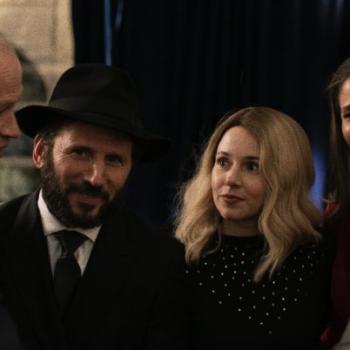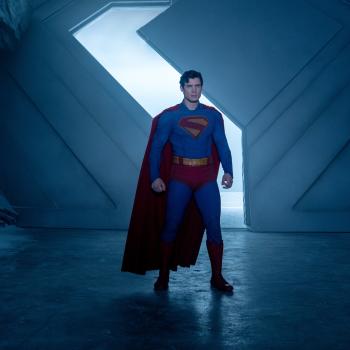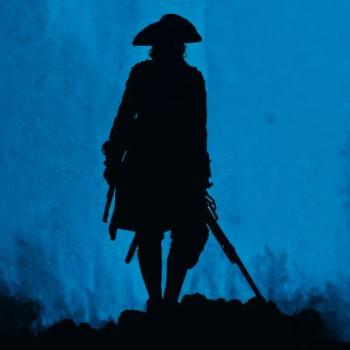I’d hate to be the Academy voters today who shut him out for nominations, because Clint Eastwood can be quite an imposing figure. He fits the mold of a grumpy old man but because of all his gunslin’ days, he becomes even more menacing.
On my first trip to Los Angeles, I was on the lookout for celebrities. I was anxious to see one and then ran into the granddaddy of them all. I was picking our special guests, the musical group Anointed, at LAX. One of the singers’ luggage was lost, so we waited until the terminal was nearly empty. Standing at the airport baggage claim, this tall grey-haired man walks up to me and stands right beside squinting at the arrivals and departures screen. It was so surreal, felt like I was standing in a movie.
Here’s a movie review I wrote of his most recent film, which I do think should have been nominated.
 When initial reports came out about Clint Eastwood’s final acting role in Gran Torino, some speculated it would be a send-off of his early shoot-em-up films, much like his Oscar-winner Unforgiven bookended his Westerns. A stone-faced Eastwood appearing with a rifle in the previews and poster seemed to reinforce that idea.
When initial reports came out about Clint Eastwood’s final acting role in Gran Torino, some speculated it would be a send-off of his early shoot-em-up films, much like his Oscar-winner Unforgiven bookended his Westerns. A stone-faced Eastwood appearing with a rifle in the previews and poster seemed to reinforce that idea. “Get off my lawn …” doesn’t quite roll off the tongue like, “Go ahead, make my day,” but Walt Kiwalski isn’t quite Dirty Harry. Sure, he’s good with a gun and isn’t one for idle humor, but this Korean War vet is a man without purpose. We meet Walt standing beside the casket of his late wife and growling as his rowdy grandchildren walk in to pay disrespects.
The film plays Walt’s grumpiness as comedy for a while, before it pulls back the curtain to expose his pain. He has lost the “greatest woman who ever lived,” but clings to other items of bygone days, like his cherished car, his home, a limited racist worldview and painful memories of war. Shunning the Hmong family who live next door, he is almost helplessly drawn in when a disturbance at their house ends up on his property.
What follows is a theme of relentless pursuit. First, a grateful Hmong girl (Ahney Her) drags Walt from his self-imposed exile into a new relationship with others, prompting Walt to reciprocate by becoming an unlikely father figure to her brother (Bee Vang). At the same time, his wife’s baby-faced priest (Christopher Carley) unleashes “loaded barrels” of hope and faith. He tells Walt that “stronger men than you” have been able to find forgiveness and make peace with the horrors of war. The old veteran is skeptical, to say the least.
The film, much like Walt’s evolving neighborhood, the film becomes a melting pot of themes and stories—an important commentary not only on moving past racism, but also on the aforementioned spotlight on faith and forgiveness.
It’s a vital conversation, but the inner-city language is raw. The language, more than the violence, is what earns this movie’s R rating, including more racial slurs than one can count.












